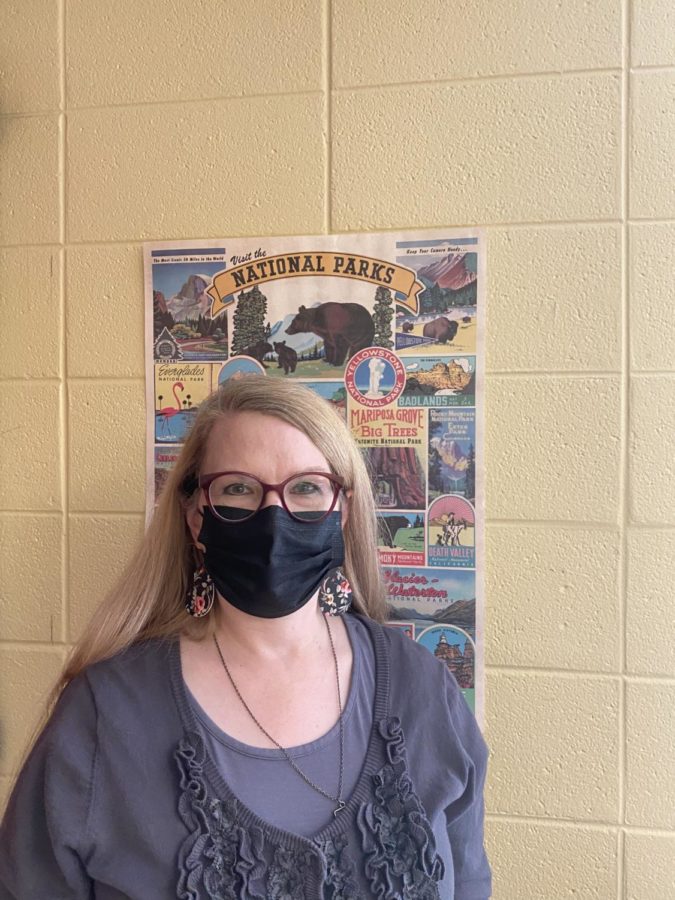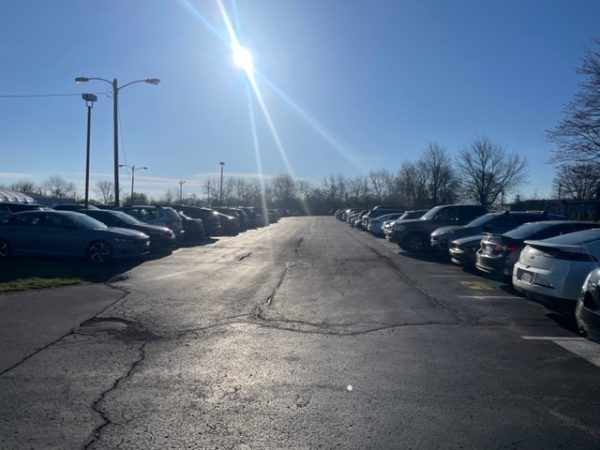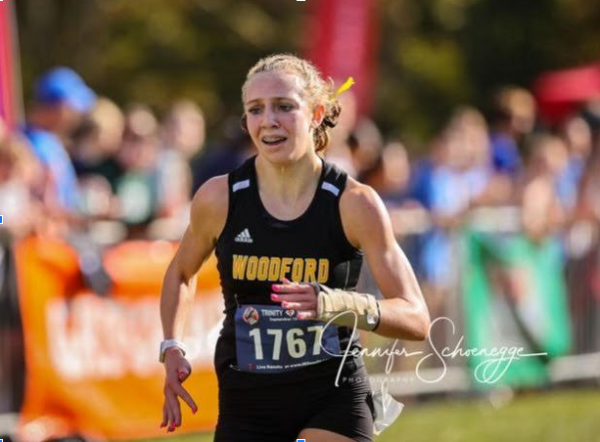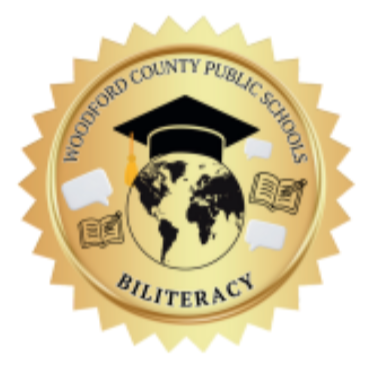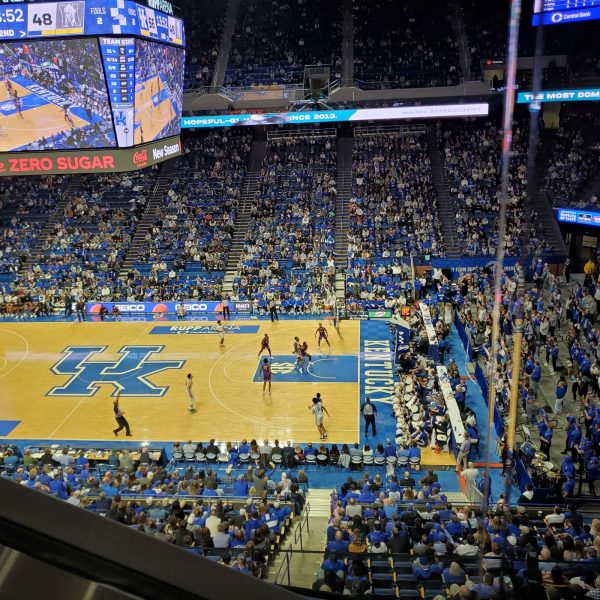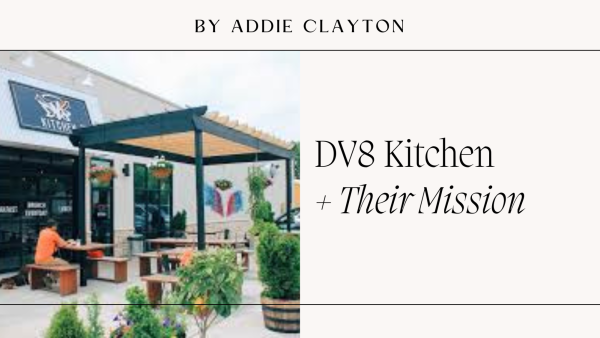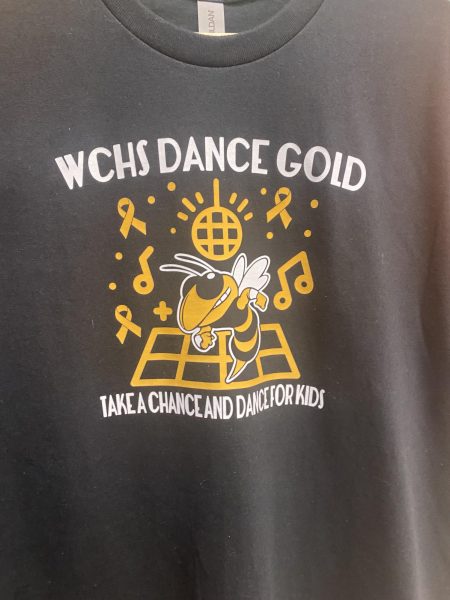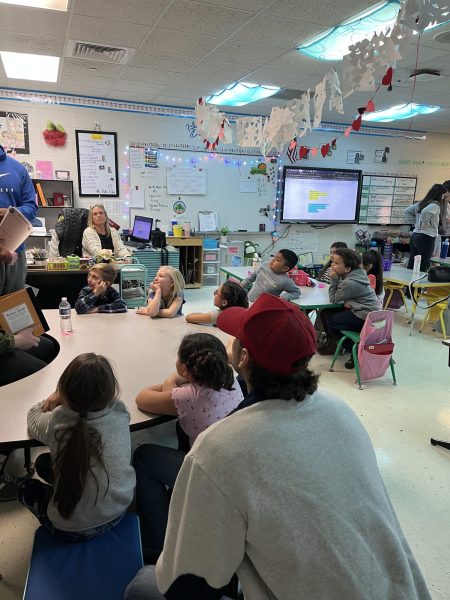Emphasis on Empathy: Mrs. Boss and Her National Geographic Project
Mrs. Boss with her National Parks poster.
Looking back on 2020, empathy became more important than ever. The COVID-19 pandemic has demanded people to understand others’ perspectives; whether it’s supporting a person through the pain of losing a loved one, wearing a mask to protect those around you, or having to be involved as either an educator or a student in a year where school is all the more difficult. 2020 also highlighted racial injustices, so listening and uplifting the voices and shared experiences of the Black community is an important step towards a world where equity is attainable. In order to create a future world where people are more understanding, educators are working to teach students the value of empathy.
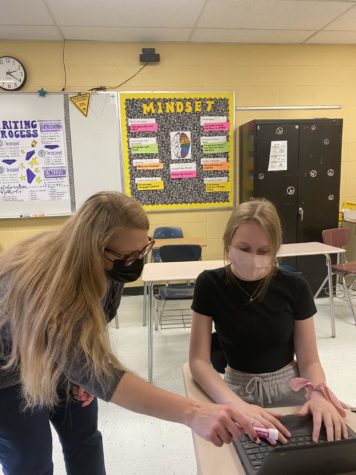
One of Woodford County’s own English teachers, Mrs. Renee Boss, has taken on a project that she hopes will teach her students the value of empathy. She has partnered with National Geographic to accomplish this mission, to encourage educators to “use the power of science, social studies, and/or geography to help educators teach social and/or environmental justice” (National Geographic).
I asked Mrs. Boss to give me an overview of her project and her motivation behind it. Mrs. Boss explained that the project was inspired by her “students’ need to better understand others and to engage in their community and the wider world.” In order to understand others, it is crucial to have empathy to have perspective and patience for where people are and what they have experienced. Boss said her project was focused on “the power of empathy interviews and student-created podcasts,” which she had students complete in her English III class this year.
Her idea to begin this project was fueled by her love for National Geographic. Boss says she grew up loving National Geographic because of its “portrayal of people from various backgrounds, cultures, and walks of life.” She says that National Geographic has caused her to want to explore more, whether it’s learning about ideas, places, or issues. She felt motivated to bring her love for National Geographic into the classroom because “being in a rural Kentucky classroom, it can feel sometimes like our opportunities to explore are limited.” However, she says that through the help of National Geographic’s Framework for Learning, she realized that being an explorer has less to do with opportunity and more to do with the attitudes, skills, and knowledge needed to be open to discovery.
Mrs. Boss first recognized the issue with a lack of empathy when she heard about the murder of Breonna Taylor last March. This event also happened at the beginning of the lockdown. Mrs. Boss says that “with the hustle and bustle of the day, we barely had time to prepare let alone see the news about a tragic incident happening in a city just an hour away from us.” She says that the combination of these issues caused distress and panic, and that “issues of systemic racism were being exposed.”
She, along with her fellow teachers, opted to spend their summers in shutdown reading and educating themselves on issues of systemic racism and social justice within America. They agreed that change was necessary and that lessons in the upcoming school year needed to highlight these social issues that are plaguing the nation. Boss, along with her coworkers, worked to figure out how these issues could be incorporated in a school year where virtual learning was foreseeable.
This project addresses these struggles and students’ need to better understand others and to engage in their community and the wider world.
— Renee Boss
Boss says that virtual learning was difficult for both herself as an educator and her students. She says that “like many other teachers across the world, I met my new students for the first time this academic year via the internet and a Zoom meeting.” She says that most of her students were quiet at first, but slowly relationships began to strengthen in her classroom, but these relationships lacked true depth. She says that “Still, as I learned more about my students, I also learned that they struggle to understand one another.” With Woodford County High School primarily consisting of white students, there was a lack of connection between students of different races, with non-white students often feeling like they don’t fit in, and students being reluctant to hear other perspectives besides their own. This project addresses these struggles and students’ need to better understand others and to engage in their community and the wider world.
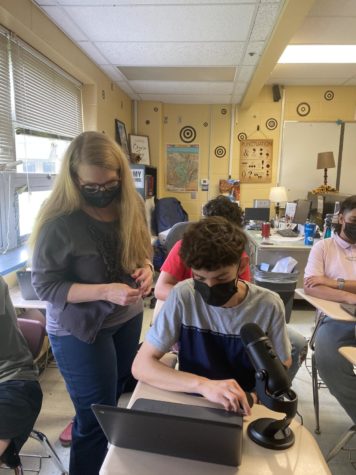
Mrs. Boss says she has thoroughly enjoyed creating and working on this project with her class through National Geographic. She enjoyed “hearing their (the students’) perspectives and their experiences as they learned to listen and understand other humans in our community.” Students were required to interact with various members of the community for this project, which Mrs. Boss said was an experience that she enjoyed because she was able to hear her students’ voices and their unique personalities. She hopes that through this project, students will “practice their listening skills and in doing so will let others know they are valued and heard” and “develop mindsets of explorers who understand the human journey and where we’ve all been and where we are going.”
This project left student voices being uplifted, diversity being celebrated, and empathy being emphasized.
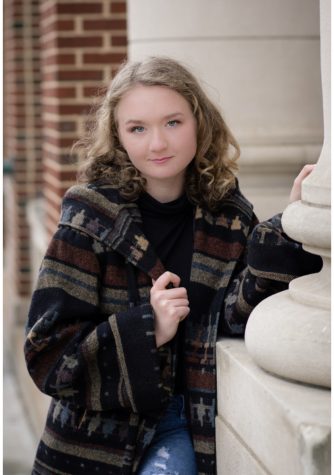
Eva Kate Probus is a sophomore at WCHS. It is her first year on The Jacket Journal. She enjoys running, baking, helping others, and listening to music....

